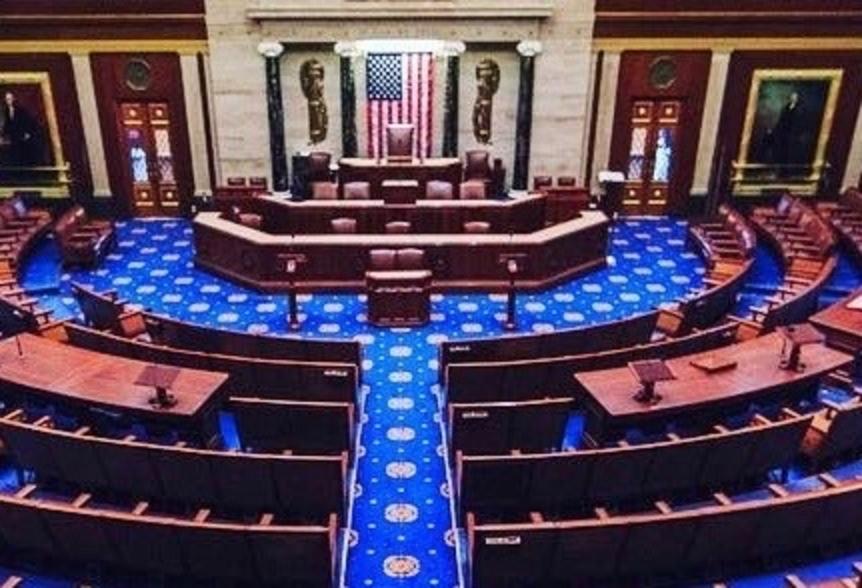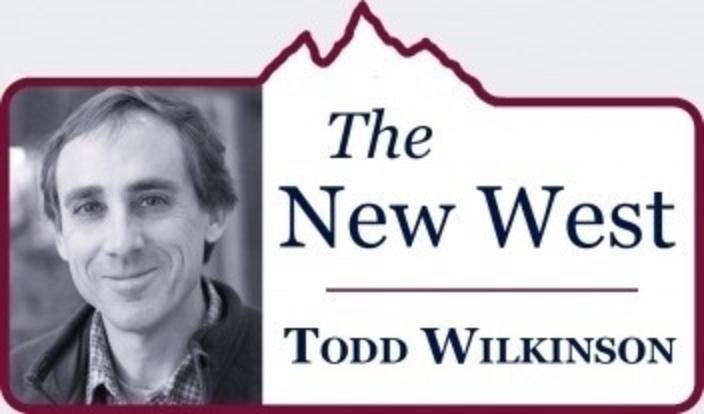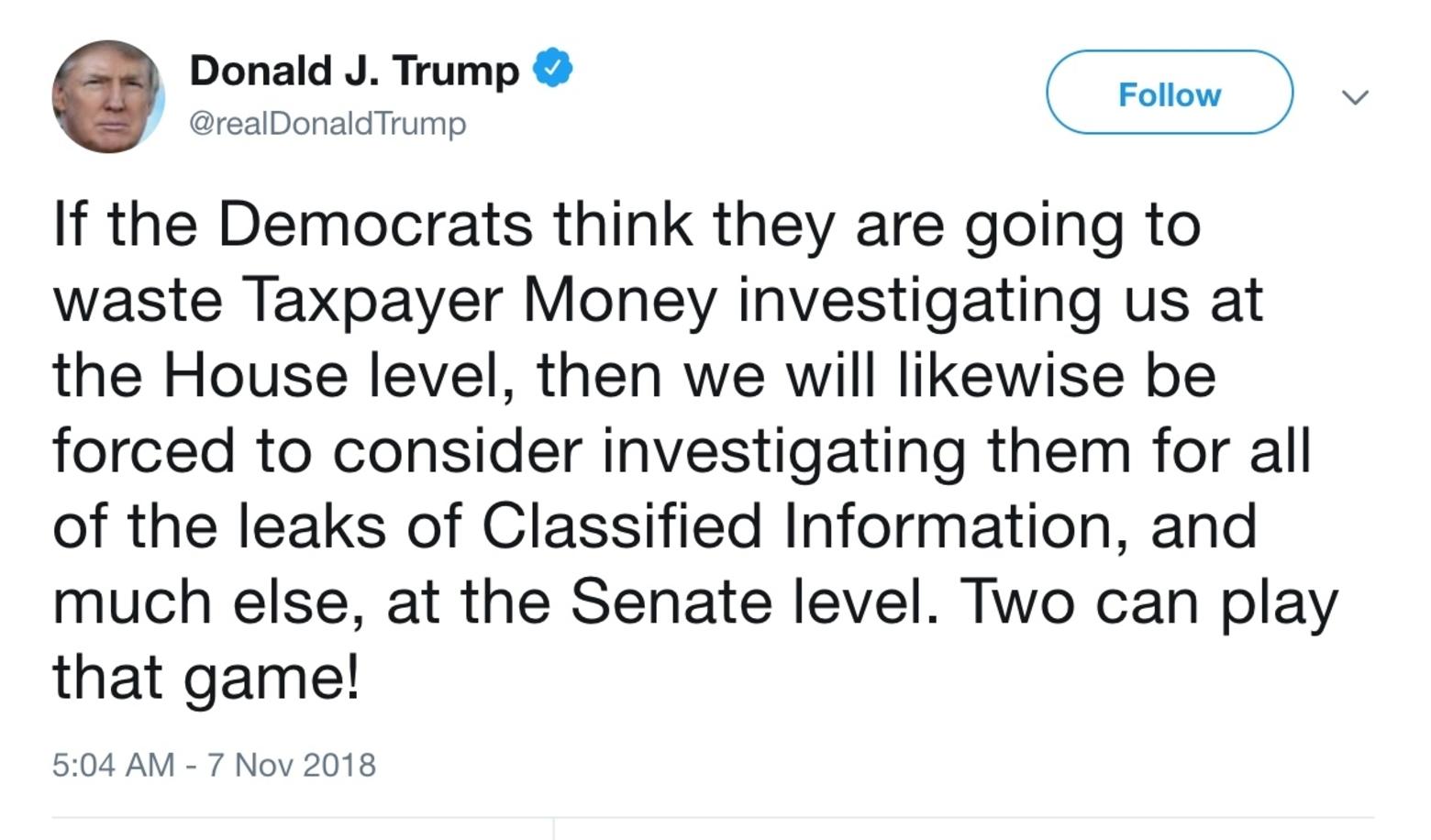Back to StoriesDems Winning House Means Major Pushback To Trump's Anti-Environment, Anti-Science Agenda
November 7, 2018
Dems Winning House Means Major Pushback To Trump's Anti-Environment, Anti-Science AgendaStill, the Democratic National Committee remains clueless in dealing with rural West and heartland
Democrats taking control of the U.S. House now means official scrutiny and oversight will come to the Trump Administration in ways it hasn’t existed before.
While the Congressional shift will result in hearings on a wide range of topics, it dramatically changes the one-sided guise of public policy in the American West—in particular prolific anti- conservation policies involving federal public lands, environmental laws and bureaucratic directives.
Make no doubt, with President Trump in The White House and Montana’s embattled Ryan Zinke as his Interior Secretary, and with the GOP’s hold on the Senate deeper than before, the push to treat the West as a 21st-century natural resource colony for fossil fuel companies, above most other considerations, will continue.
But what hasn’t happened since the Trump Presidency began in 2017 is a significant check on controversial actions coming down the pike that met little legislative resistance or scrutiny because Republicans held all of the cards.
Now, with Democrats commanding the House, and having committee chairmanships enabling them to decide what hearings will be held and who can testify at them, the consequences of attacks on the country’s longstanding conservation traditions will get full airing.
The era of having a loyal opposition has re-begun. Still, the reality is that in the Greater Yellowstone Ecosystem—the tri-state region of Wyoming, Montana, and Idaho, where every incumbent GOP Congressperson won re-election—fact-based rhetoric will remain a problem.
U.S. Reps. Greg Gianforte of Montana, Liz Cheney of Wyoming, and Mike Simpson of Idaho will continue to deny human-caused climate change and make a push to resurrect the dismal fortunes of the coal industry. They will join Zinke in opening up public lands to increased oil and gas drilling at the expense of wildlife habitat, clean air and water concerns. They will carry on with their thinly-veiled positions, consistent with the GOP’s official party platform, of hoping to transfer management of some federal lands over to states. They will delight in advancing efforts to undermine landmark laws such as the Wilderness Act, Endangered Species Act and full funding of the Land and Water Conservation Fund.
Both Gianforte and Cheney sit on the House Natural Resources Committee led by its chairman, U.S. Rep. Rob Bishop of Utah, who is considered one of the most radical anti-environment, anti-public lands legislators ever to serve in Congress.
Now Gianforte and Cheney will contend with Democrats, likely led by U.S. Rep. Raul Grijalva of Arizona, summoning a battery of scientists, public policy experts and others whose voices have been absent or muted. This will result in another dynamic: with Democrats in the House offering a counter-narrative to the GOP’s anti-science positions, perhaps now U.S. Reps. Gianforte and Cheney will be forced to stop fleeing from the media and the public they serve, refusing to hold live town hall meetings or answer questions from real journalists. To date, both have only listened to partisan constituents and special-interest industries that told them what they wanted to hear or who contributed to their re-elections.
Not listening, after all, was the same charge leveled by Tea Partiers in 2010 who claimed Democrats were deaf to their concerns. Yet here are a couple of fascinating anecdotes that put the rural West within a larger context: Democrats nationwide cumulatively won the popular vote and, secondly, they claimed a higher percentage of the plurality than Tea Party candidates did eight years ago.
What it means is that by remaining obstinate, entrenched in anti-science rhetoric, they position their states to remain stuck in a 19th-century natural resource exploitation- frontier mentality that will only continue to leave Montana, Wyoming and Idaho falling further behind. All three are struggling to create truly sustainable economies and prepare young people to thrive in the future.
At the same time, the National Democratic Party needs to stop treating the rural West as a sacrifice zone—a throwaway— and cease making specious excuses every time their candidates lose. It needs to invest in listening and go to places it has written off.
Gianforte and those in charge of running his campaign were relentless in falsely portraying his challenger Kathleen Williams of Bozeman as a “Nancy Pelosi Democrat.” Pelosi’s name is radioactive in the rural West, so is that of U.S. Sen. Chuck Schumer of New York.
As smart as Pelosi and Schumer might be and as rooted as they are in the Democrat’s bi-coastal identify, so long as they remain the party’s figureheads, Democrats are going to lose in the rural West because both Pelosi and Schumer seem clueless in understanding what’s on the minds and in the daily struggles of rural working people everywhere.
While the rural West isn’t where the big vote pools are, the center of the country, including the heartland and Midwest, hold the values with which a huge percentage of Americans still culturally identify. When was the last time you saw a Democrat walk down the street of a western town carrying the Stars & Stripes in a Fourth of July parade? Like it or not, the symbolism of patriotism matters; it matters more than any erudite, wonky stump speech about healthcare especially for those who want to belong but feel left behind.
If you don't believe it's true, you'll be reminded of it every day by Fox and the right-wing doyens of AM radio. They feed a pervasive perspective in the hinters that Democrats are ashamed to call themselves Americans.
When was the last time you saw a Democrat walk down the street of a western town carrying the Stars & Stripes in a Fourth of July parade? Like it or not, the symbolism of patriotism matters; it matters more than any erudite, wonky stump speech about healthcare, especially for those who want to belong but feel left behind.
Liberals may be smugly dismissive but they haven't been smart enough to win rural counties for a long time. It isn't rural people who need to change; it's how Democrats engage them, non-condescendingly and demonstrate an ability to relate and understand and empathize with a worldview that isn't urban.
Kathleen Williams may have lost in her Congressional bid but someone charismatic like her (she is a progressive who also hunts, fishes and has professional experience working with ranchers and farmers) should actually be considered to lead the Democratic National Committee. And, she is capable of firmly pushing back rhetorically, not being mealy-mouthed, in confronting Trumpian distortions of truth.
Until Democrats begin to take personal responsibility for why their party message isn’t resonating, and so long as they are merely a coalition of disparate single-issue interests—and not a party of compelling common values—they may win the popular vote nationally but in the rural West remain perceived as being grossly out of touch with reality.





